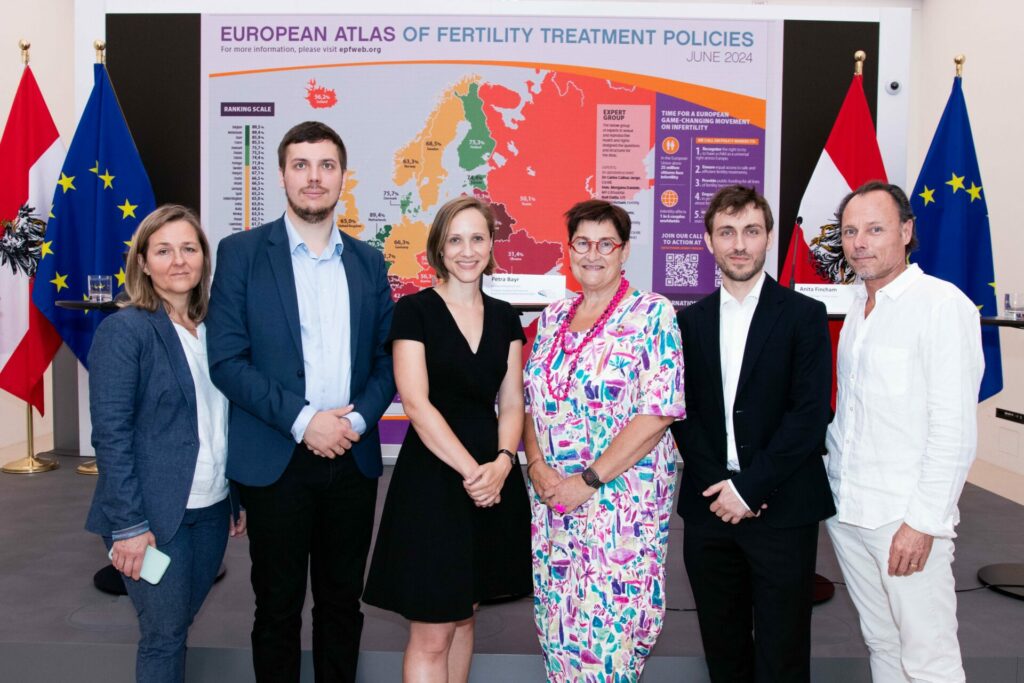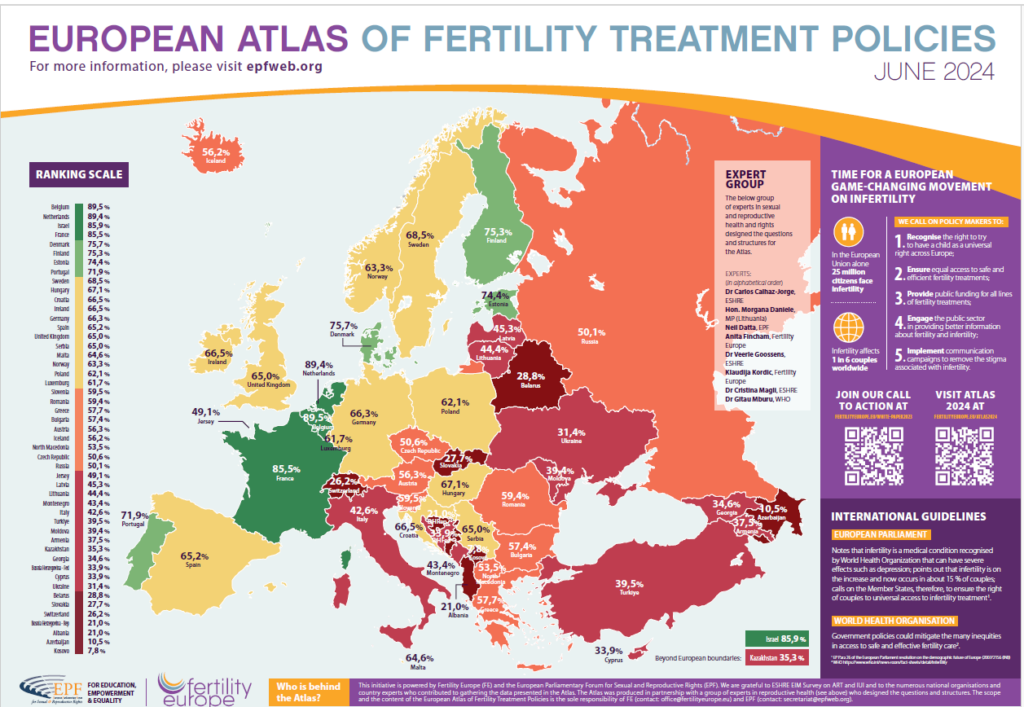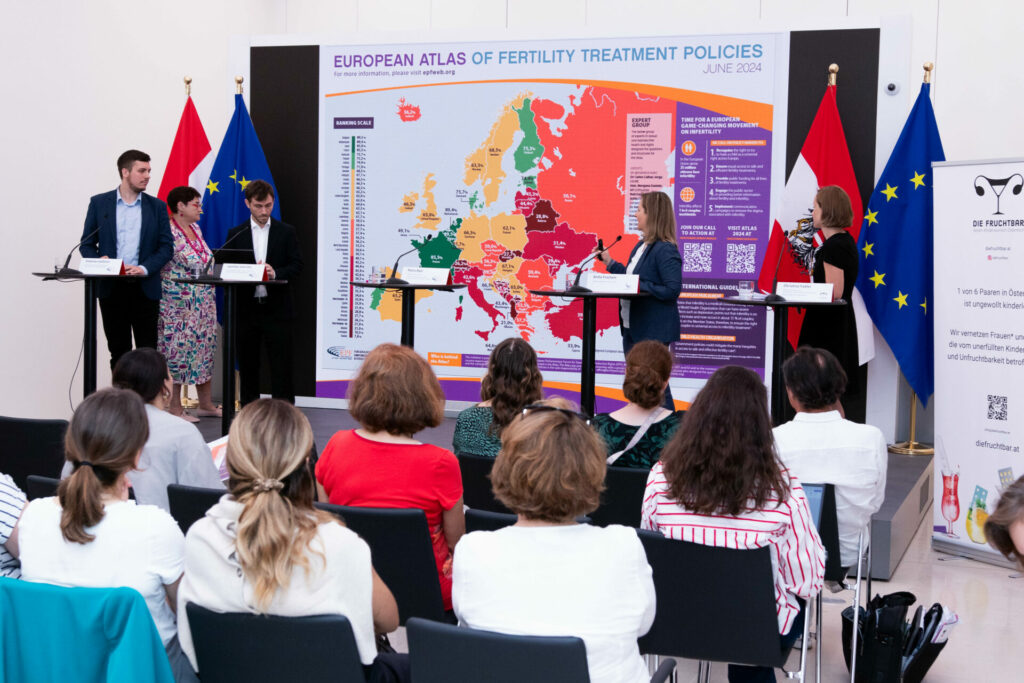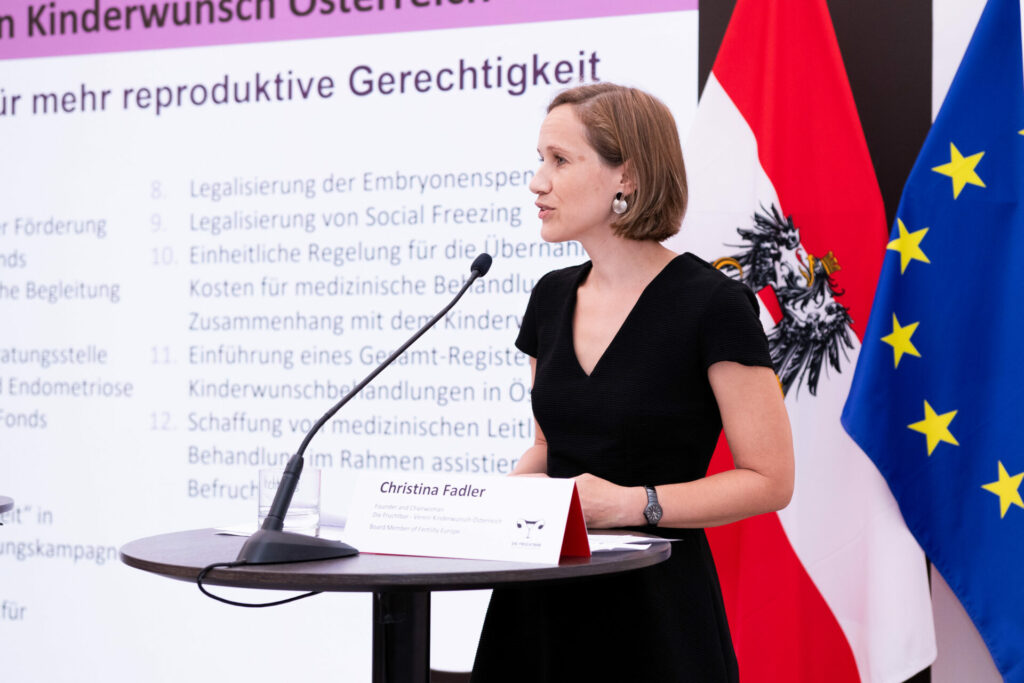Reading time: min

On June 19, 2024, the second edition of the European Atlas of Fertility Treatment Policies, developed by Fertility Europe and the European Parliamentary Forum for Sexual and Reproductive Rights (EPF), was presented in the Austrian Parliament. Policymakers are called to action.
In Austria, one in six people is involuntarily childless and is considered infertile. Although the World Health Organization recognises infertility as a disease, defined as the failure to achieve a pregnancy after 12 months or more of regular unprotected sexual intercourse, affecting around 25 million people in Europe, it is still not acknowledged as such in Austria. The prerequisites for IVF funding, such as having a specific diagnosis, are heavily criticised. The topic remains taboo and poses significant challenges for many people.
To underscore the importance of fertility, or broader involuntary childlessness, as a public health issue, EPF President Petra Bayr (MP SPÖ), the Austrian Society for Family Planning (ÖGF), and the patient organisation “Die Fruchtbar – Verein Kinderwunsch Österreich” invited attendees to the presentation of the second edition of the Atlas of European Fertility Policies. The Atlas provides an overview of fertility policies in 49 European countries. In Austria, the country’s fertility policy ranks mid-range in Europe with 56.3 per cent.

The regulations for fertility treatments in Europe vary significantly. Affected individuals face substantial financial and emotional burdens. Challenges include access to diagnostics, financing, lack of public awareness programs, and insufficient psychosocial support. In Austria, affordable family counselling centres often lack the expertise needed to deal with infertility, and there are high financial barriers. Access to reproductive medicine is particularly costly for LGBTQIA+ couples.

In Austria, infertility diagnosis as defined by the WHO is not sufficient to access public funding, so most treatments must be paid for by those affected. While IVF is 70 per cent funded by the IVF fund, additional costs for medication are not covered, and around €1,100 per treatment must be paid out of pocket. The costs for less invasive treatments, such as assisted inseminations (IUI), must be borne entirely by the patients. Single women and same-sex couples face discrimination, as assisted reproduction methods are not accessible to single women, unlike in neighbouring countries like Germany or the Czech Republic. Austrian women often have to go abroad within the EU to fulfil their desire to have children. Access to fertility treatments for same-sex female couples from Austria is only available in 22 out of 49 European countries.

Christina Fadler, chairperson of the association “Die Fruchtbar” and a board member of Fertility Europe, explains, “IVF may seem like a trend for many, following the motto: Career first, then children. But for many couples, assisted reproduction is the only way to have a desired child, regardless of age and life plans. Same-sex female couples have it particularly hard: irreparably damaged or blocked fallopian tubes, endometriosis, or PCOS are the only reasons to be eligible for publicly-funded treatment – it often takes years to get a diagnosis and access to the IVF fund. Additionally, affected individuals have to take leave from work for egg retrieval because infertility is not yet recognised as a disease in Austria – and this surgical procedure is far from pleasant or relaxing.”
As part of their work on the Fertility Atlas, EPF and Fertility Europe are calling for inclusive regulations in all European countries. These include recognising the right to try to have children as a universal right in Europe, ensuring equal access to safe fertility treatments, and providing public funds to support all who need it. The public sector should provide information about (in)fertility and raise awareness to eliminate the stigma of infertility.
People who are willing to have children in Europe need to be supported by the policymakers – in Austria respecting infertility as a diagnose, providing good access to funded treatment for all who needed and psychological support can help to grant their reproductive autonomy and address demographic decline – says Anita Fincham, Advocacy Manager at Fertility Europe.
Read more about the Atlas here.
Copyright © 2025. Fertility Europe. All rights reserved.
Design & Development: Plavi Pixel 2025.
Join our newsletter to receive heartfelt stories, expert insights, and updates from Fertility Europe.